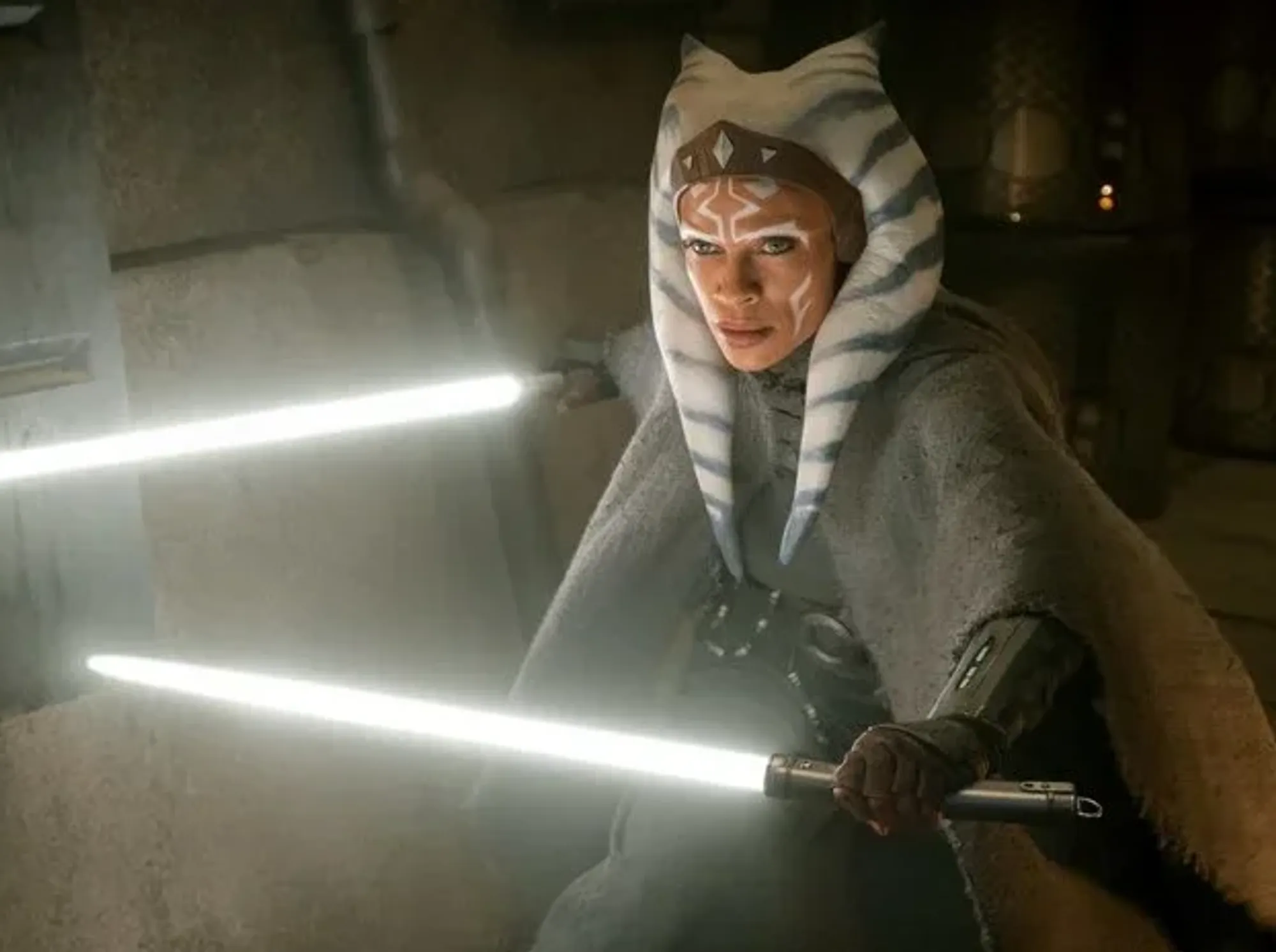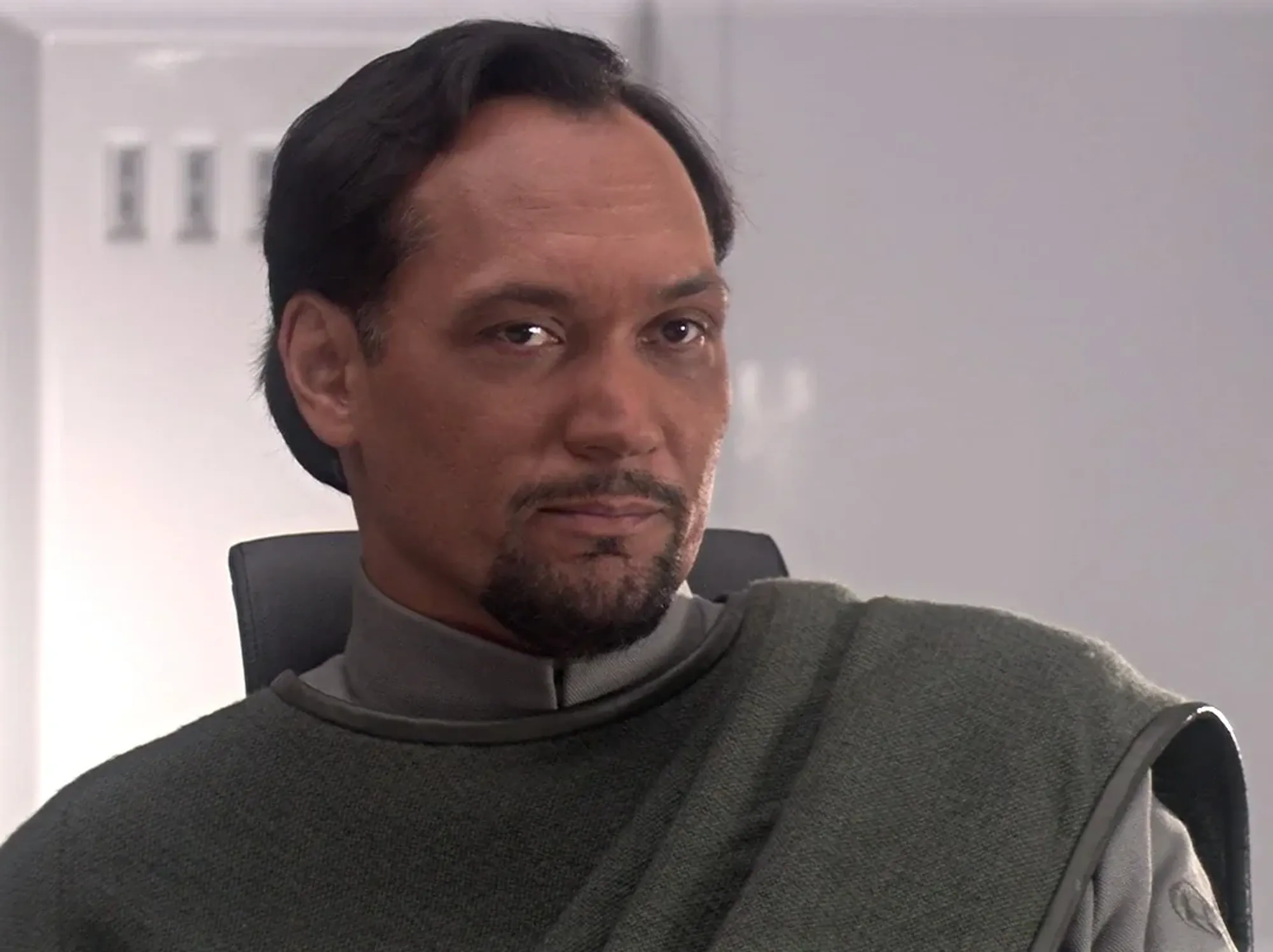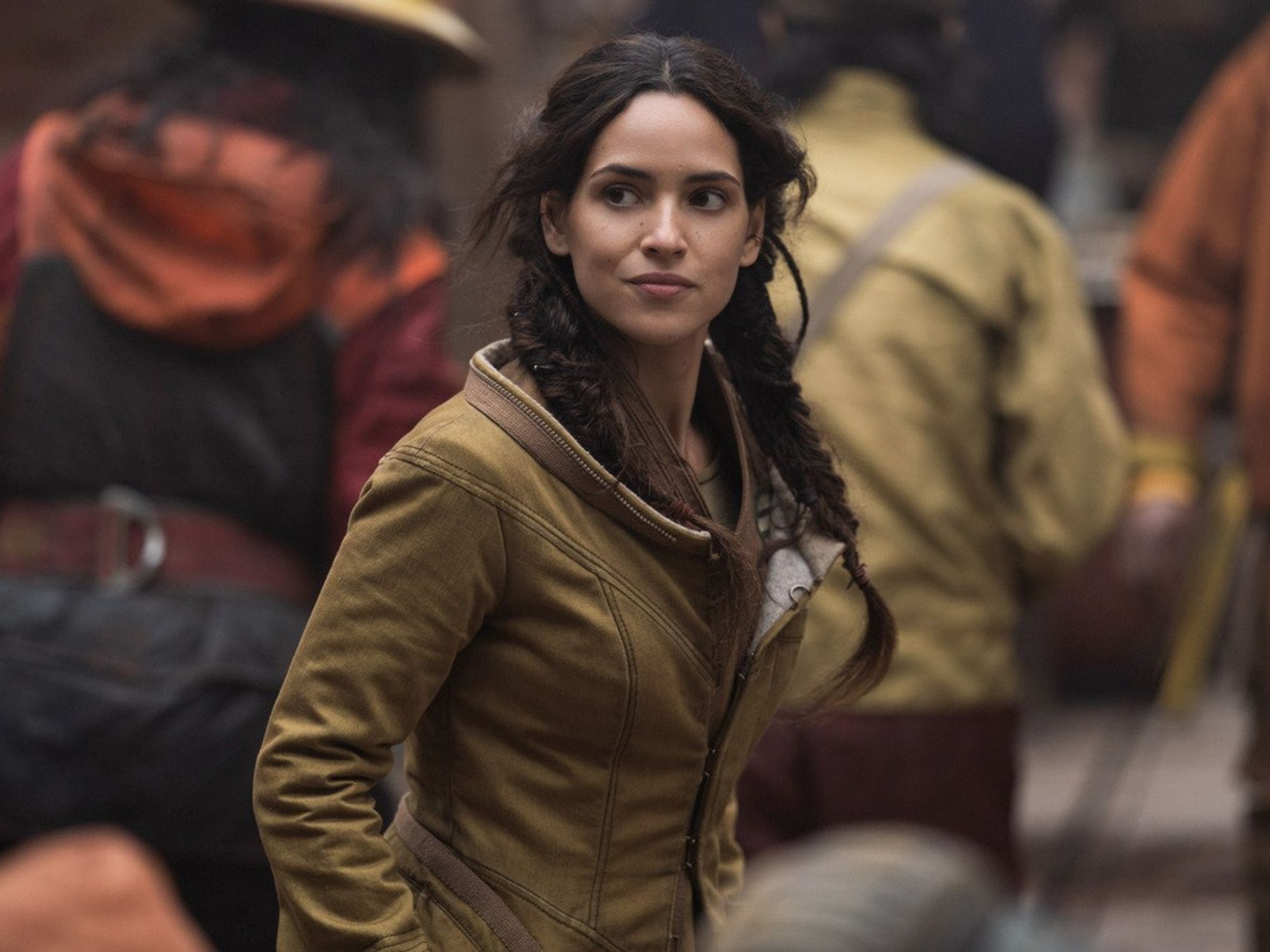
Star Wars has always been more than just an epic space adventure. At its core, the franchise is a reflection of our world, borrowing heavily from our cultural inspirations and real-life struggles.
From the underdog nations in historical and current conflicts to the real-life heroes inspiring Princess Leia's iconic hair, Star Wars has always been a way for us to see ourselves reflected in a galaxy far, far away.
The Star Wars universe has evolved to reflect the changing landscape of Hollywood, with an increasing emphasis on diversity and representation that rings particularly true for Latinos, as the franchise has welcomed more and more talented Latino actors into its castin the past few years. From Pedro Pascal's magnetic performance in "The Mandalorian" to Diego Luna's emotional portrayal of Cassian Andor in "Rogue One: A Star Wars Story," Latinos have become a crucial part of the Star Wars universe.
So today, we're going to celebrate in style by showcasing some of the coolest characters played by Latinos in the Star Wars universe. May the 4th be with you!
Oscar Isaac as Poe Dameron

Promotional image for "Star Wars: The Force Awakens" featuring Oscar Isaac as Poe Dameron. Source: Wookieepedia
You may have caught him in his breakthrough roles in "Inside Llewyn Davis" or "Ex Machina." Still, his portrayal of the dashing Resistance pilot Poe Dameron in the Star Wars sequel trilogy made him a household name.
Whether he was leading daring missions against the First Order or trading quips with his trusty droid, BB-8, Isaac brought an undeniable energy to the role. His chemistry with his co-stars, particularly John Boyega's Finn, added an extra layer of humor and heart to the films. If the Force were looking for a pilot with swag, they couldn't have done better.
Rosario Dawson as Ahsoka Tano

Promotional image for "Ahsoka" featuring Rosario Dawson as Ahsoka Tano. Source: IMDB
Rosario Dawson is a multi-talented actress, producer, and activist known for her impactful performances and dedication to social and political causes. As a self-identified Afro-Latina, Dawson has used her platform to advocate for inclusivity and representation in Hollywood.
Rosario Dawson's portrayal of Ahsoka Tano in the live-action adaptation of "The Mandalorian" is nothing short of Jedi-level mastery. Her performance brings the beloved animated character to life, captivating audiences with her wit, skill, and undeniable coolness. In short, she is Ahsoka Tano come to life, and we are all here for it.Pedro Pascal as Din Djarin

Promotional image for "The Mandalorian" featuring Pedro Pascal as Mando. Source: IMDB
Pedro Pascal is a true Renaissance man of the entertainment world. This Chilean-American actor has wowed audiences both on the big and small screens (and let's not forget the internet).
In "The Mandalorian," Pascal brought the iconic bounty hunter to life with nuance and depth, cementing his place in the Star Wars universe. But he's not just a talented actor. Pascal is also a passionate advocate for Latino representation and social justice issues. He's used his platform to speak out against the mistreatment of immigrants and has been a vocal supporter of the ongoing fight for racial equality.
Pedro Pascal has got it all - the talent, the looks, and the humor. And with all of these qualities combined, it's no surprise that he's breaking the internet every day or so. We're grateful for it, though.
Diego Luna as Cassian Andor

Promotional image for "Andor" featuring Diego Luna as Cassian Andor. Source: Wookieepedia
Diego Luna is the ultimate jack-of-all-trades, with a career as varied as his background. He got his start in Mexican soap operas, but then he completely owned the screen in "Y Tu Mamá También," "Milk," and "Rogue One: A Star Wars Story."
As Cassian Andor, Luna took us to emotional depths we didn't know existed. And he's not just an acting prodigy - Luna also directs, produces, and uses his platform for social justice. Fun fact, we’ve seen people on the internet refer to him, along with Oscar Isaac and Pedro Pascal, as the "space papi trifecta." Sounds like a cosmic dream team to us.Jimmy Smits as Bail Organa

Still image from "Star Wars" featuring Jimmy Smits as Bail Organa. Source: Wookieepedia
Jimmy Smits is a true Hollywood OG. He's been killing it since the 80s, with memorable roles in shows like "L.A. Law" and "Sons of Anarchy." But for Star Wars fans, he's best known as Senator Bail Organa - the human who helped spark the Rebel Alliance and Princess Leia’s adoptive father.
Smits brought depth and dignity to the role, showing us why he's among the best in the biz. And it's not just acting that Smits cares about - he's also a champion for the Latino community and a big supporter of the arts.
Mercedes Varnado as Koska Reeves

Still image from "The Mandalorian" featuring Sasha Banks as Koska Reeves. Source: Wookieepedia
Mercedes Varnado, better known by her ring name Sasha Banks, is a force of nature - in and out of the ring. The California-born wrestler stole our hearts with her athleticism and charm, becoming a champ in her own right.
And now, she's showing off her acting chops as Koska Reeves in "The Mandalorian" and its spin-off. But Banks is more than just a talented performer - she's also an advocate for mental health awareness.Adria Arjona as Bix Caleen

Promotional image for "Andor" featuring adria Arjona as Bix Caleen. Source: Wookieepedia
Adria Arjona is a star on the rise, and her background is as fascinating as her acting chops. Hailing from Puerto Rican-Guatemalan roots, Arjona started in Spanish-language productions but quickly found her footing in English-language TV and film. She's wowed us in "True Detective," "Pacific Rim: Uprising," and "Morbius" with her ability to play complex characters.
And now, she's making her way to a galaxy far, far away as Bix Caleen in the “Andor” television series, a character with a tough exterior that protects her vulnerable core. But Arjona's talents don't stop at acting - she's also an activist who uses her voice to speak up for immigrant rights and climate change.Under The Makeup

From left to right: Lupita Nyong'o as Maz Kanata, Horatio Sanz as Mythrol and John Leguizamo as Gor Koresh. Source: Wookieepedia
Just because they're buried under layers of makeup doesn't mean aliens in the Star Wars universe aren't getting some Latinidad.
Kenyan-Mexican actress Lupita Nyong'o brought the fearsome pirate queen Maz Kanata to life via motion capture in all three Star Wars sequel trilogy films. Maz might be an alien, but Lupita's performance gave her a humanity and gravitas that we'll never forget.
Meanwhile, Chilean-American comedian Horatio Sanz added some comedic relief to The Mandalorian as Mythrol - a wanted fugitive who ended up getting carbon-frozen by Pascal's character. It might be tough to spot Horatio through all the prosthetics but trust us, he's in there!
And let's not forget about Colombian-American actor John Leguizamo, who played the boastful Abyssin alien Gor Koresh in The Mandalorian. John is a master of disguise, and his portrayal of Gor Koresh was just as memorable as any of his human roles.
So, the next time you're watching Star Wars and see an alien character that looks a little familiar, don't be surprised if you find out that there's a talented Latino actor behind the makeup.
Behind The Scenes

Robert Rodriguez speaking at the 2014 San Diego Comic Con, California. Source: Gage Skidmore
The Star Wars universe is more diverse than a space cantina, and there's a whole squad of Latinos making it happen behind the scenes. One of the biggest names on that list is Robert Rodriguez - the man who brought us the Mariachi trilogy, Sin City, and Alita: Battle Angel.
But Rodriguez's talents don't stop at the big screen. He's also a master of the small screen, having directed episodes of fan-favorite shows like Breaking Bad and, of course, The Mandalorian. And now, he's calling the shots on one of the latest Star Wars sensations, The Book of Boba Fett. As showrunner and executive producer, Rodriguez injects his unique style into the galaxy's criminal underworld.
And last not but least, the man who keeps the Star Wars ship sailing smoothly - Pablo Hidalgo. As the creative executive at LucasFilm, this Chilean-Canadian creative is the ultimate authority on all things Star Wars. From the Skywalker Saga to the latest Disney+ series, Pablo makes sure that the continuity is rock-solid across all mediums.
The Star Wars universe is a prime example of how diversity and representation can enrich a story and make it more impactful and meaningful for everyone. So let's celebrate the Latine heroes of Star Wars and keep fighting for more inclusivity in our media and beyond.
- Representation and Visibility: Narrative Change through Meaningful LGBT Latine Characters ›
- Hollywood's Inclusion Journey: Progress and Hurdles at the 2023 Oscars ›



 Freezing Parks And Recreation GIF by MOODMAN
Freezing Parks And Recreation GIF by MOODMAN Food Wow GIF by CBC
Food Wow GIF by CBC Sweating Heat Wave GIF
Sweating Heat Wave GIF Movie Reaction GIF
Movie Reaction GIF

 Image by
Image by 
